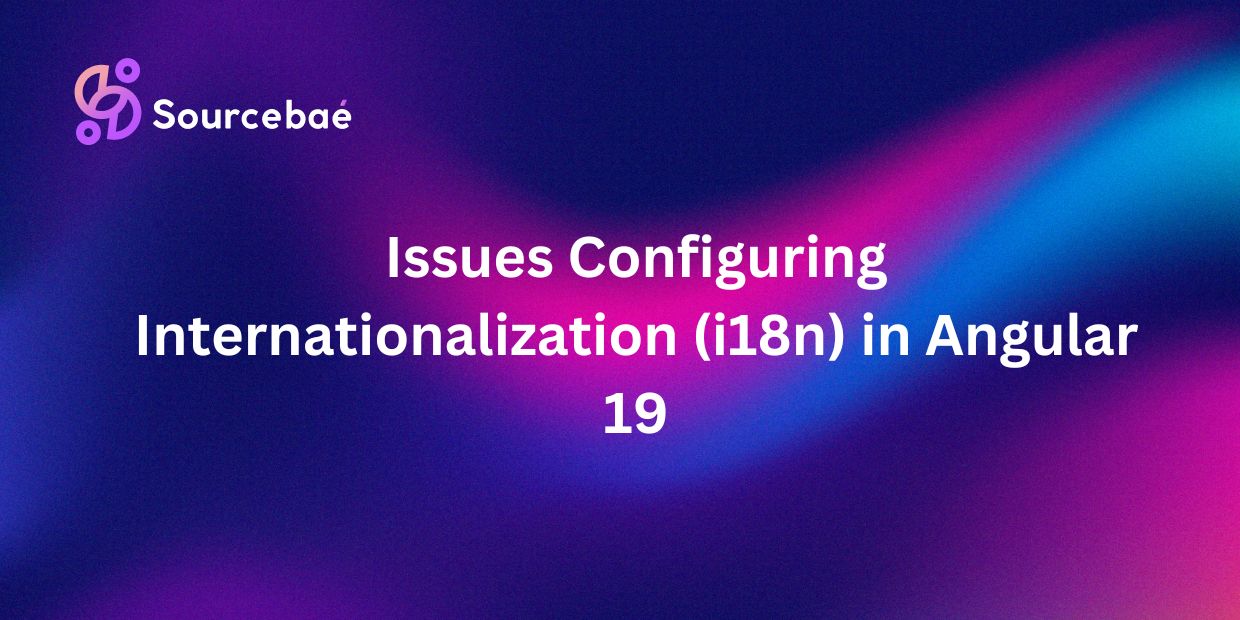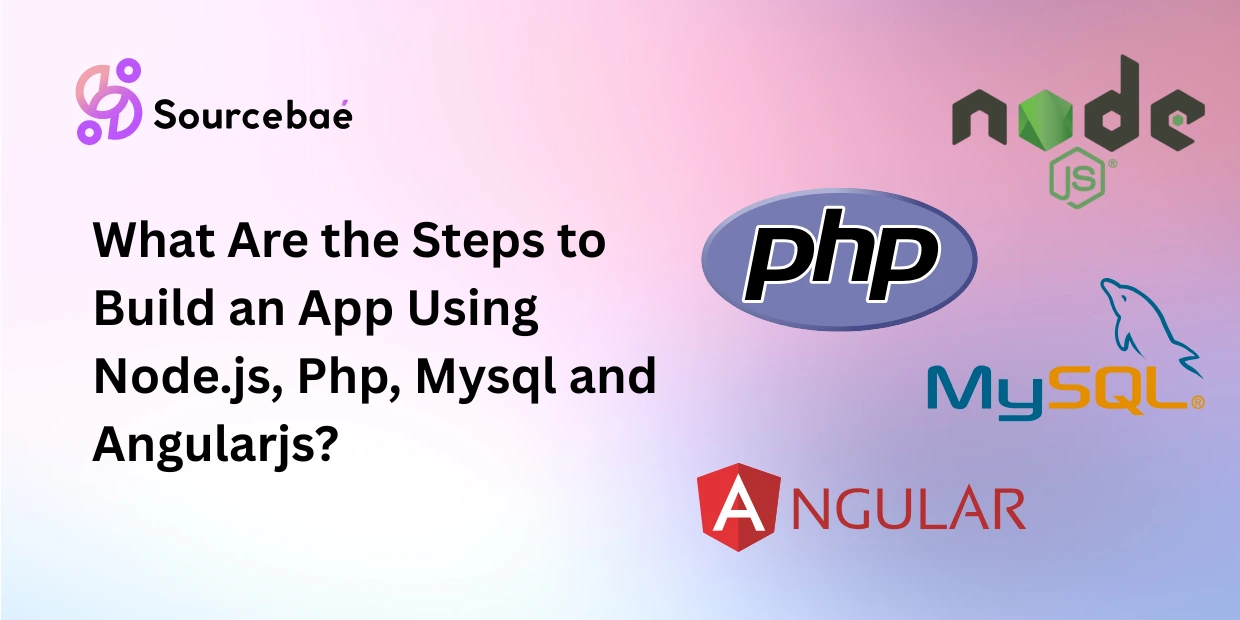Angular, a popular JavaScript framework, has gained immense popularity among developers for building dynamic web applications. While Angular primarily focuses on the front end, it often requires a compatible backend language to manage server-side tasks and handle data processing. Choosing the right backend language is crucial for ensuring optimal performance and seamless integration with Angular.
In this comprehensive guide, we will explore various backend languages compatible with Angular, evaluate their strengths and weaknesses, and help you make an informed decision about the best backend language for your Angular projects.
Which Backend Language is Best for Angular?
Let’s dive into the top backend languages that work best with Angular and explore their features and use cases.
| Backend Language | Description |
|---|---|
| Node.js | Node.js is a powerful backend language that excels in handling real-time applications and asynchronous tasks. It uses JavaScript on the server-side and seamlessly integrates with Angular. With its event-driven architecture, Node.js ensures high performance and scalability, making it an excellent choice for building responsive Angular applications. |
| Python | Python is renowned for its simplicity and readability. It offers a wide range of frameworks, such as Django and Flask, that integrate well with Angular. Python’s versatility allows developers to build complex applications effortlessly. Its extensive libraries and support for integration with various databases make it an attractive option for Angular projects. |
| Ruby on Rails | Ruby on Rails, often referred to as Rails, is a user-friendly backend language that follows the convention over configuration (CoC) principle. It provides seamless integration with Angular, allowing developers to build applications quickly and efficiently. Rails’ focus on simplicity and productivity makes it a popular choice for startups and small to medium-sized projects. |
| PHP | PHP is one of the most widely used server-side scripting languages, with a large community and extensive documentation. While traditionally associated with content management systems (CMS) like WordPress, PHP can effectively support Angular applications. However, developers need to ensure proper architectural considerations to achieve optimal performance and security. |
| Java | Java, known for its robustness and cross-platform compatibility, is another viable option for backend development with Angular. Java offers numerous frameworks like Spring and Play, which facilitate the integration process. Though Java may involve more boilerplate code, it compensates with its reliability and suitability for enterprise-level applications. |
| Go (Golang) | Go, commonly known as Golang, has gained popularity due to its speed and simplicity. It offers excellent concurrency support and is highly efficient in handling concurrent requests. While Go might not have as extensive a library ecosystem as other languages, it is a great choice for building performant and scalable backend systems that complement Angular applications. |
Pros and Cons of Each Backend Language
Node.js
Node.js has numerous advantages when paired with Angular:
- Seamless Integration: Node.js uses JavaScript on both the client and server sides, enabling developers to work with a unified language and share code components between front-end and back-end applications.
- Asynchronous Programming: Node.js excels in handling asynchronous tasks, making it perfect for real-time applications, such as chat applications or collaborative tools.
- Large Package Ecosystem: Node.js has a vast collection of open-source packages available through npm (Node Package Manager), streamlining development and reducing the need to reinvent the wheel.
However, there are some considerations to keep in mind:
- Scalability Challenges: While Node.js can handle a high number of concurrent connections, its single-threaded nature may face scalability challenges for extremely resource-intensive applications.
- Learning Curve: Developers new to asynchronous programming may find Node.js initially challenging to grasp.
Python
Python offers numerous benefits in conjunction with Angular:
- Readability and Elegance: Python’s simple and readable syntax reduces development time and enhances code maintainability, making it a popular choice for developers.
- Abundance of Libraries: Python has a rich ecosystem of libraries and frameworks, such as Django and Flask, that facilitate rapid application development.
- Extensive Community Support: Python boasts a large and active community that provides excellent support and frequent updates.
However, there are some drawbacks:
- Performance: Python may not be as performant as other languages like Node.js or Go, especially for CPU-intensive tasks.
- Global Interpreter Lock: The Global Interpreter Lock (GIL) in Python can lead to performance bottlenecks for multi-threaded applications.
Ruby on Rails
Ruby on Rails offers the following advantages for Angular projects:
- Conventional and Productive: Rails follows the “convention over configuration” principle, providing sensible defaults that boost productivity.
- Rapid Development: Rails emphasizes the development of working applications quickly, ideal for startups and MVPs.
- Active Community: Rails has an active community that contributes to the continuous improvement of the framework.
On the flip side:
- Learning Curve: Developers new to Ruby may require some time to adapt to the language and Rails’ conventions.
- Performance: Rails may not be as performant as some other languages like Go or Java, especially for applications with high traffic loads.
PHP
PHP has its share of advantages for Angular backend development:
- Widespread Use: PHP powers a significant portion of websites on the internet and has matured over the years, offering stability and reliability.
- Abundance of Frameworks: PHP boasts several frameworks like Laravel and Symfony, which streamline development and promote best practices.
- Low Barrier to Entry: PHP is easy to learn for developers familiar with other C-style languages, making it accessible to a broader range of developers.
However, it also has some challenges:
- Performance: PHP’s performance might not match that of languages like Node.js or Go, especially for CPU-intensive tasks.
- Inconsistent Ecosystem: PHP’s ecosystem includes both well-maintained libraries and some outdated or less-maintained options, requiring careful consideration when choosing dependencies.
Java
Java brings the following strengths to the table:
- Robust and Mature: Java has been a top choice for enterprise-level applications due to its robustness and long-term support.
- Versatility: Java offers various frameworks like Spring and Play, catering to different application requirements.
- Strong Type System: Java’s static typing helps catch errors at compile time, ensuring a higher level of code reliability.
However, there are some considerations:
- Verbose Code: Java can be more verbose compared to languages like Python or Ruby, leading to more extensive codebases.
- Memory Consumption: Java applications may require more memory compared to languages with lightweight runtimes.
Go (Golang)
Go presents the following advantages for Angular backend development:
- Highly Performant: Go’s focus on performance and efficiency makes it an excellent choice for building backend services that complement Angular applications.
- Concurrent Programming: Go’s concurrency model enables developers to handle multiple requests efficiently.
- Built-in Tools: Go comes with built-in tools for testing, profiling, and documentation, streamlining the development process.
However,
there are some considerations:
- Evolving Ecosystem: While Go’s ecosystem is growing, it may not be as extensive as some other established languages.
- Learning Curve: Developers new to Go may require some time to familiarize themselves with its unique features.
FAQs
Is Node.js the best backend language for Angular?
It depends on your project requirements. Node.js is an excellent choice for real-time applications and asynchronous tasks. However, consider factors like scalability and developer expertise before making a decision.
Which backend language is the most beginner-friendly with Angular?
Python is known for its simplicity and readability, making it a great choice for developers new to backend development.
Can I use Java for building scalable Angular applications?
Yes, Java is a reliable backend language suitable for building scalable Angular applications, especially in enterprise environments.
Does the choice of backend language affect Angular’s performance?
Yes, the backend language can impact Angular’s performance, especially for tasks involving data processing and server-side computations.
Are there any specific security considerations when choosing a backend language for Angular?
Yes, each backend language has its security considerations. Ensure that the language and its associated frameworks receive regular updates and have a strong community to address potential security issues.
Which backend language is best for large-scale Angular applications?
While all the listed languages have their strengths, Java and Go are particularly well-suited for large-scale applications due to their robustness and performance.
Conclusion
Choosing the best backend language for Angular projects is a critical decision that can significantly impact the overall performance and success of your web applications. Each backend language we discussed offers unique features and advantages. Node.js is an excellent choice for real-time applications, Python excels in simplicity, Ruby on Rails boosts productivity, PHP is widely used and accessible, Java is robust for enterprise-level projects, and Go is highly performant.
Consider your project’s specific requirements, the complexity of your application, and your development team’s expertise when making this decision. Always prioritize code maintainability, security, and scalability. By selecting the right backend language, you’ll create a powerful and seamless integration with Angular, providing your users with a fantastic web experience.






